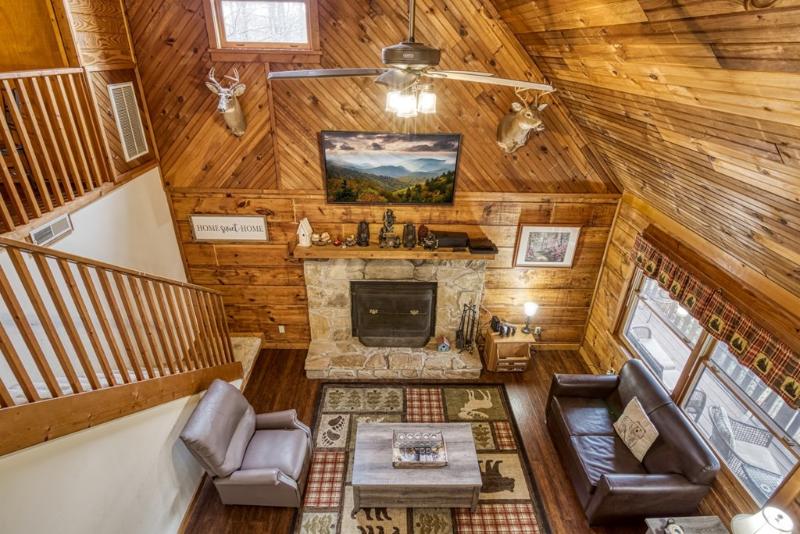One thing retirees quickly notice when considering retiring to the Smoky Mountains of East Tennessee is that we have a lot, lot, lot of retirement properties taking the form of vacation cabins and chalets that are similar to, but not quite the same as, conventional home properties. Many of these properties are considerably more expensive than a conventional home property, but not always, and all it would take is an interesting-looking cabin looking over a Smoky Mountain city or miles of Appalachian mountain in the right place at the right price to make anyone start considering a retirement phase at a little slice of heaven like they can provide.
Sevier County has thousands of vacation cabins all across Pigeon Forge, Gatlinburg, Wears Valley, Sevierville and Pittman Center and they range greatly in size, style, architecture, amenities and accessibility. Some are in neighborhoods or near enough, some are in gated communities and some are very private with neighbors few and far between. Some cabins are so far into the “back country” that you might not see or hear another car unless you go out yourself. Depending on your social needs while in retirement, you might want or need something convenient in town, somewhere almost totally isolated or something in-between to get what you really want out of it. Apart from that, many cabins have built-in amenities that are not standard for conventional houses – hot tubs, game rooms, cathedral ceilings, whole walls of windows to see the views outside while being inside, private movie rooms and sometimes even a private swimming pool.
With all the good things to say about having a vacation cabin as a retirement home, why is this article called “A Retirement Home Or A Retirement Cabin?” so as to infer a less obvious choice? Because, as stated above, vacation cabins are often, not always, but often, more expensive than conventional homes and are not often built or designed like conventional homes. There are pros and cons between the two. We showcases some pros above in introducing retirement cabins to you, now we’ll expand on that.
* The vacation cabins are built for vacations, not necessarily year-round conventional living like a normal house. The differences are not apparent at first, but you would see how trying to fit all your clothes and possessions into these houses that already have certain kinds of furniture in them already would present a challenge. You obviously could live year-round in any kind of professionally built house, but it would be very different than a conventional house and lifestyles changes would be warranted to keep up living in them as you would want to. Conventional houses and retirement homes usually would not have that.
* Vacation cabin properties are are meant to focus on the inside themselves, not as much the outside. Many cabin properties have no actual land to speak of other than a small driveway and no room to do at-home auto maintenance. If you have anxiety about close spaces or high spaces (as many cabins are literally built and held up on cliff walls), a vacation cabin might not be for you. That said, many other cabins have proper outdoor space and were conventional family homes before being converted into vacation cabins, so that problem is not universal.

* Vacation cabins are often clustered together in vacation “communities” like Shagbark near Wears Valley or Chalet Village in Gatlinburg. That means you will often have other vacationers coming into town with families or hot rods or party weekends. If noise is something you want to avoid in retirement, a vacation cabin might not be for you. Then again, even with a conventional house here in the Smokies, many of us have other vacationers and hot rods frequently going on around us as well, so there might not be a difference there at all.
* Along with additional expense and additional maintenance to keep up your vacation cabin property, the mortgage process of buying one will likely be different than with a conventional home due to the property’s different build, its history with hundreds or thousands of past guests, and how it is zoned for residential or commercial property. Mortgage processes account for the possibility that you might turn around and rent out the property to vacationers again (based on precedent).
These are just some things to think about in consideration for a cabin as a retirement option versus a conventional retirement home. Contact me anytime at: 865-268-9702 | 865-453-4049. luisadees@gmail.com.

Comments are closed